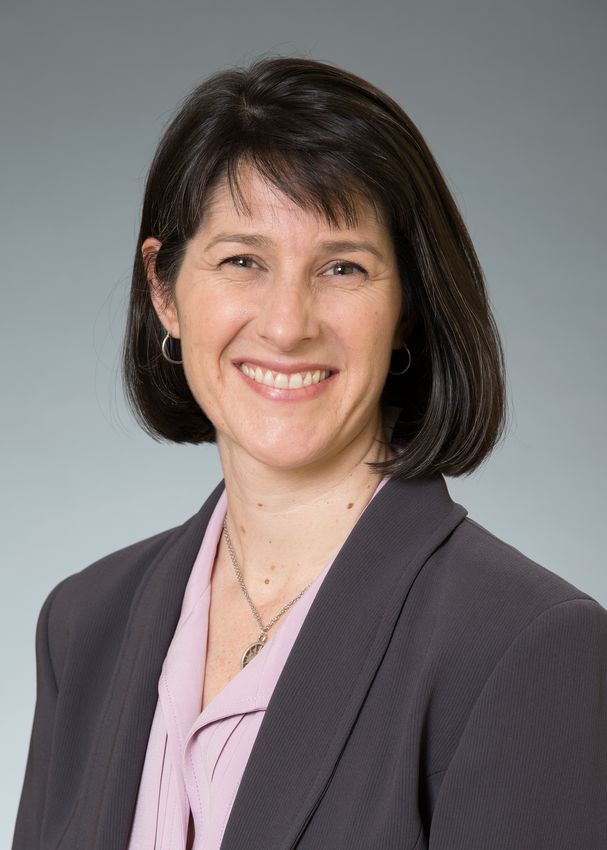
What does it mean to be named an Emerging Leader in Hospice and Palliative Medicine?
Receiving this award was very meaningful for me. First, it was validating that AAHPM recognizes leadership in many different forms and practice settings. As someone who came to palliative care later than average, and started practice in a community teaching hospital, I assumed I would never achieve national recognition. But I love what I do: local teaching and mentoring and building relationships with others who enjoy doing the same.
Second, AAHPM’s decision to change the eligibility criteria was meaningful for me because it reduced age and gender bias inherent in “under 40” awards. In my case, I spent my earliest post-fellowship years immersed in challenging hospital politics, largely isolated from a professional network, and challenged with secondary infertility. Because of my later entry into palliative care, that gave me little time to distinguish myself as a leader before I was 40. But five years later, in a more supportive environment, after successfully forming my family, and having developed a rich network of colleagues, I found myself more interested in creating a broader impact in the field.
Finally, as I reflect on the past 5-9 years, I feel intensely grateful for those who have supported me. I always understood that people need to be nurtured to develop into leaders, but this award crystallized my gratitude for the mentors, sponsors, collaborators, and friends who have been part of my journey. The Emerging Leader Recognition encourages me to continue my own efforts to unite, collaborate, share, and buoy others.
Describe how you became interested in hospice and palliative medicine and who/what influenced your work?
I was destined for palliative care long before I knew the word. In college, my psychology professor encouraged me to specialize in psychiatry, but I explained that what interested me most was how typical individuals coped with serious illness. After residency, I discovered the palliative care specialty and realized it perfectly fit my natural interests and developing skills: my history of thinking outside the box to meet patient and family needs, my strong respect and admiration for interdisciplinary colleagues, my organizational skills, and my interest in leadership. HPM was the perfect discipline to combine everything, so I pursued fellowship training after several years of practice in medicine. It also helped me give purpose to my grandfather’s death (in 2005, shortly after completing my residency), which was a painful death with only rudimentary comfort provided. Years later, my training came full circle, as I guided my family through my grandmother’s death in a supportive and compassionate way.
It would be impossible to name all those who have mentored, coached, and sponsored me, but a few individuals stand out. David Weissman invited me as an outside fellow to a PCLC weekend, and continued mentor me for early program development. Andy Esch sponsored my participation as faculty at a CAPC workshop, and subsequently national webinars. Recently, I have been most grateful for peer mentors including Katie Neuendorf, Tom LeBlanc, and Katy Hyman who have helped me grow outside of my comfort zone.
What is your vision for the future of hospice and palliative medicine?
I was drawn to palliative care because of an inherent affinity for studying communication and empathy but learning and practicing palliative care has taught me more than I ever imagined. Palliative care has taught me about effective communication, respect for all people, and honoring the small but sacred moments. Palliative care has also taught me about the need for sustainability, for pacing myself, the value of diverse perspectives, and how to tap into others for support. For me, the slogan “palliative care everywhere” resonates deeply with the value I see in spreading palliative care principles beyond “end of life” care. Not only should we move palliative care upstream, but we can also use the same palliative care principles with our staff and colleagues. We can apply those principles beyond those who are seriously ill. We can use effective communication and kindness strategies in all areas of healthcare and all areas of life.
My vision for the future is that palliative care experts will use these powerful lessons and teach others to apply them in a variety of settings. For me personally, this has led to my efforts in clinician well being, in which I use palliative care lessons and skills (such as building team culture, setting appropriate boundaries, and finding hope) to improve the well being of my colleagues in other departments. I hope to see more of this type of lesson sharing across fields as we move into the future.
